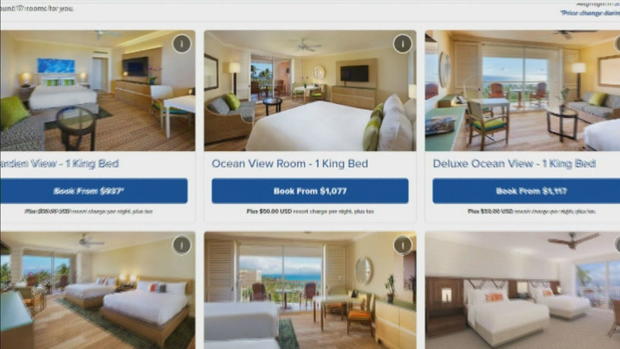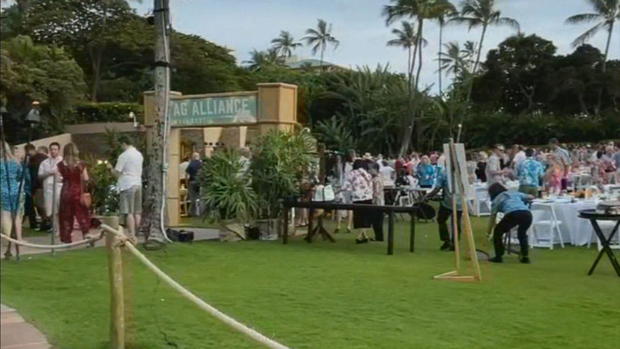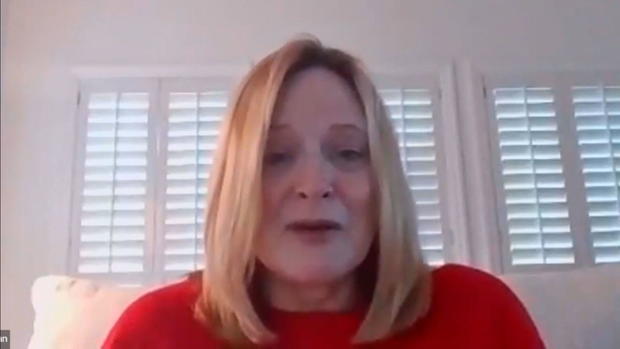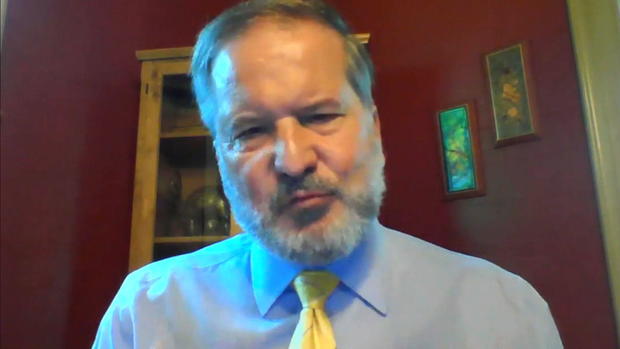Colorado Attorney General Phil Weiser attends lavish event in Hawaii paid for by corporations he's suing
An investigation by CBS News Colorado reveals how state attorneys general, including Colorado AG Phil Weiser, are attending lavish events funded, in part, by companies they're suing and investigating.
An organization called the Attorney General Alliance - made up of 48 attorneys general - is at the center of it all. Weiser is Chair the organization.
It's a private club that corporations and lobbyist organizations pay tens of thousands of dollars to belong to. Their membership buys them access to extravagant events where they can schmooze the top legal officers for state government, individuals who have sole discretion over whether to sue, settle, or investigate them.
CBS News Colorado received video of the group's 2021 annual conference in Maui from a Republican group. While its motives are political, the events in question include AGs from both parties.
The video shows Weiser and other AGs at the Grand Wailea Resort, a place billed as a "tropical oceanfront paradise" with "luxurious accommodations" that start at a thousand dollars a night, but AGs didn't have to pay a dime.
Their stay was compliments of taxpayers and sponsors, including corporations like Google, Facebook, Juul, and Pfizer - all of which AGs were suing at the time. The events have been happening quietly for years.
Now, for the first time, someone with inside knowledge of the gatherings is speaking out, in an exclusive interview with CBS4.
"To me, it's Ethics 101 that you don't take advantage of a situation that's being funded by organizations that you're suing or investigating," says Chris Toth, the former executive director of the National Association of Attorneys General, a quasi-governmental organization that provides training and resources for AGs.
Unlike the AG Alliance which, he says, exists primarily to give corporate executives and lobbyists access to attorneys general.
According to the organization's internal recruiting manual, the more corporate sponsors give, the more access they get. Sponsorships start at $10,000.
For years, Toth says, he's sounded an alarm about the growing influence of corporate money in the AG community. Now, he's retired and speaking publicly for the first time.
"Any person would look at this and say, 'you know that's not right, any more than if the attorney I hired was hanging out with and taking things from the person I'm suing,'" Toth said.
An independent audit of the organization's finances shows states paid $470,000 last year for their AGs to belong. Most of the group's funding - 70% or nearly $5 million - came from corporate sponsors, many of which also donate to AGs political campaigns.
Colorado's AG Phil Weiser held a fundraiser in Maui the day after the conference. Weiser has sued, settled or is currently in litigation with more than a dozen corporate sponsors.
"Phil Weiser was aware of my views. He had different views," says Toth.
Weiser declined an interview with CBS News Colorado but, in a statement, defended the organization - saying it allows AGs to "collaborate on issues of common interest".
Former Republican AG Cynthia Coffman, who endorsed Weiser's re-election bid, says events like this are about problem-solving not influence-peddling.
"We had a cryptocurrency seminar and I can assure you the brightest AGs couldn't have taught what the crypto market was about," she said. "You have to have people who function in that world and understand it. I've had corporations say, 'this helped me be a better corporate citizen and do my accounting and compliance because I heard you all talk about what your expectations were.'"
Coffman and Weiser say they paid for everything but food and drink when they attended the annual conference in Hawaii. But they didn't have to under state law.
"It's proven to be one of the most difficult things to regulate," says Bill Leone, former chair of the state's Independent Ethics Commission. He says commissioners received a complaint in a similar case a few years ago.
"It was hard to put your finger on an ethical rule or law that was violated by doing it but it was distasteful and it's gotten even worse," he said. "The whole idea of paying for access and paying for what they perceive to be influence is what makes the average person look at these things and say this is part of a rigged system. So if Phil were sitting here today, I'd say 'don't do it.'"
Coffman pointed skeptics to multi-billion dollar settlements with corporate sponsors, "You have only to look at the amount of money that they had to settle and pay for their behavior to see there was not favoritism."
Toth says it's the appearance of impropriety that concerns him, "Could some of these settlements have been higher? Perhaps. Perhaps not. But when you're taking things from the people you're suing and investigating, it certainly creates a very, very troubling perception."
Especially, he says, when you're the people's attorney and the people you represent are excluded from the gatherings: "If you're an advocate for survivors of opioids or an organization that wants to keep companies from polluting rivers, you used to be able to get in the meeting by paying the same fee as everyone else but now essentially you're locked out."
Coffman says people don't have to pay to meet with their AGs: "Anyone in the public has access to an attorney general, to be able to call the office and say I'd like an appointment with General Coffman or General Weiser to talk about this particular issue."
She says conferences she attended included opposing viewpoints but the agenda for the Maui conference shows a full day of cannabis panels with industry advocates but no opponents. Coffman and Weiser say AGs don't court sponsors and they have no influence on lawsuits or settlements but Toth says they don't pay tens of thousands of dollars for nothing.
"Is it really worth violating the public trust and taking money from people that are being sued and investigated so you can have better food, better swag bags, better social events? Is it really worth that?" Toth asks. "I think clearly the answer is no."
But for now - there's no law against it.
"What really has to happen is the voters have to put their foot down and say 'we don't like it. We don't want our public officials to play in a rigged game. We want them to serve our interests and, if they punish that behavior, it will stop,'" Toth said.
Tania Maestas, deputy director of the AG Alliance, sent CBS News Colorado a statement saying the organization's events are free to academics and non-profits but she wouldn't provide the names of any that have attended an event. She says the organization's mission is the education and collaboration of AGs.
Toth says the education is one-sided, pointing to the organization's Cannabis Project, which he says the industry helps fund, and yet, it is headed up by one of Weiser's Assistant AGs who helps regulate the industry. The organization also has an initiative in Africa that is led by the General counsel for Pfizer.
Toth says the company underwrites the initiative and has a large presence in Africa.
CBS News Colorado reached out to several corporate sponsors for comment.
Only Pfizer responded with a statement saying: "Our engagement with the Attorney General Alliance has focused mainly on education and awareness of the dangers that counterfeit medicines pose to patients. Pfizer's political giving is led by two guiding principles - to preserve and further the incentives for innovation, and protect and expand access to medicines and vaccines for the patients we serve. Our contributions to the Alliance are based on that criteria alone and to suggest otherwise would be inaccurate and misleading."
According to Coffman, at least six Colorado AGs - three Republicans and three Democrats - have belonged to the organization. When it started about 30 years ago, it included only Western AGs and was focused on issues like water, tribal rights and natural resources. Coffman says it evolved into a national organization during her tenure.
Weiser has chaired it for a couple years but was still unwilling to go on camera and defend its funding from corporations and lobbyist organizations.









